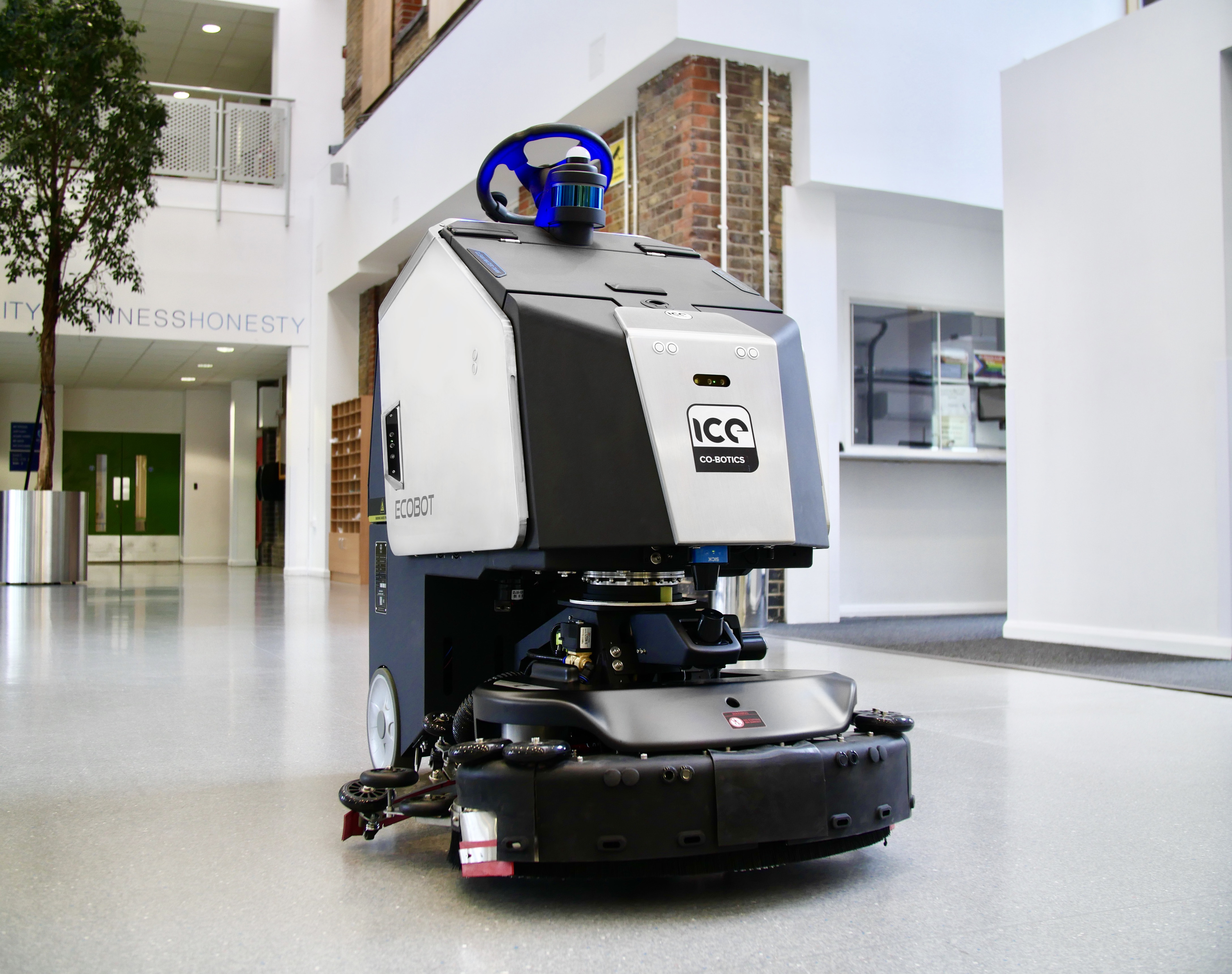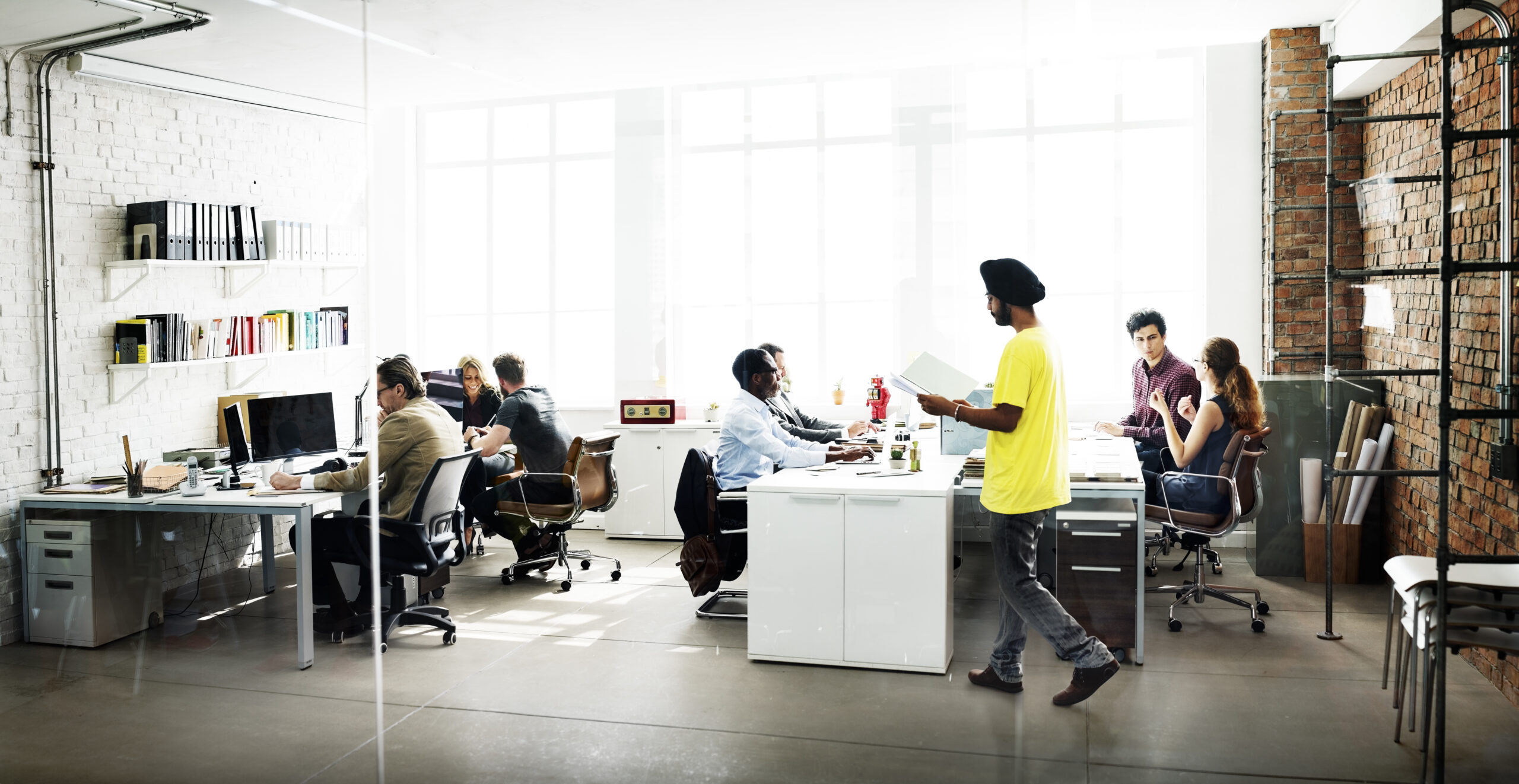
Innovation in Facilities Management
Key trends revolutionising the Facilities Management industry.
As rising expectations push businesses to operate more economically, sustainably and efficiently, opportunities exist for innovative solutions to remedy outdated practices and processes. In this review of current developments, we explore some of the key trends revolutionising the commercial environment, from a Facilities Management perspective.
Data-driven decision making
IoT and cloud technology present almost unlimited possibilities for the future of Facilities Management. State of the art ‘smart buildings’ can monitor and control electronic systems, lighting, ventilation, temperature control, meeting room availability, feedback panels and even soap levels in bathroom dispensers. Combine this with live reporting, automatic ordering systems and automated service requests, and Facilities Managers are presented with a compelling offer.
The vast quantity of data collected in these high-tech environments can be easily directed to a common building management systems and reporting platform. This provides the user with detailed and readily accessible information, leading to insightful and meaningful decision making. Analysis of a building’s energy consumption, for example, could indicate whether plant upgrades would provide a return on investment, while fault monitoring can identify and prevent a costly equipment failure before it’s too late.
Although the full extent of this capability is limited to modern developments, older sites can still benefit from carefully planned retrofitting and updates. The implementation of automated lighting and air conditioning systems alone is estimated to reduce energy expenditure by as much as 40%.
Due in part to the trend towards hybrid and remote working, employees in the workplace are more concerned with the quality of their working conditions than ever before. This makes sensor optimised systems a good investment for businesses that wish to create a comfortable, functional, efficient and safe working environment for their teams.
The future of clean
A crucial aspect of sustainability is moving towards processes and behaviours that minimise unnecessary waste. In the commercial cleaning industry, the recent shift towards using environmentally friendly cleaning products has been long overdue. Biodegradable options are taking the place of traditional ones, reducing air and water pollution instead of contributing to it.
Another significant development is the replacement of liquid cleaning chemicals with a solid or concentrated alternative. Globally, the use of chemicals for cleaning equates to billions of litres a year, all of which require, transportation and storage. Furthermore, the toxic nature of many chemicals can add complexity when recycling their plastic containers and wastage is common when the chemical is transferred to spray bottles or equipment.
Concentrated and solid chemicals offer an elegant solution to this problem and provide undeniable benefits to both suppliers and end-users. Taking the form of either compact dry powder or liquid sachets, the product can be added directly to its corresponding measure of water and then applied in the same way as traditional liquid chemicals. Additionally, it is easy and inexpensive to transport, requires little space to store and boasts minimal packaging. This means fewer deliveries for the customer, cutting both supply chain costs and emissions.
One leading manufacturer of concentrated commercial cleaning products, ‘Biodose’, estimate that in only nine years they have prevented over 12 million bottles (or 1,000,000 kgs) of plastic waste. While ‘SOAP₂O’ recently demonstrated that just one pallet of their hand soap contains the equivalent of approximately 36’000 litres of product. By contrast, the same quantity of liquid soap would require an eye-watering 42 pallets to transport.
While some of the necessary steps towards sustainability will inevitably require sacrifice, this particular adjustment provides mutual benefits to both businesses and the planet.
Exploring new frontiers
Geofencing involves the creation of a virtual boundary around a physical location. Most commonly a marketing practice used to target potential customers, it utilises GPS and RFID technology to trigger a predetermined action when a mobile device enters or exits a set area. An establishment in a shopping centre, for example, may choose to use Geofencing as a method of distributing a promotional offer to visitors within the complex.
This versatile modern workforce tool translates to Facilities Management in a unique and sophisticated way. The capability to accurately identify and track attendance, followed by actionable prompts, gives Geofencing a multitude of potential applications. For example, signing in and out could be executed directly from a mobile device, worked hours can be monitored to corroborate overtime or prevent colleagues from exceeding the working time directive and contractors entering construction areas can be sent health and safety reminders. In addition, it can also be used to prompt action with specified parameters, such as requesting a client’s signature for completed works.
Whilst developments in this area may provoke accusations of a dystopian outlook, when reliably implemented, the potential benefits look as though they would far outweigh any negative connotations.
The age of automation
Advancements in automation are present in all facets of modern industry, from agriculture to financial services, with Facilities Management no exception. These technologies minimise human intervention, resulting in improved accuracy, consistency and productivity and ultimately lowering operational costs.
Automation within the FM industry began with the implementation of specialised software. This removed the antiquated reliance on paper records, forms and documentation, allowing for proactive asset tracking, ticket resolution and reservation and supplier management.
In more recent times, larger technological leaps have been presented to the industry in the form of Robots, or rather ‘Co-Bots’ due to their partial reliance on human collaboration. Varying from small carpet cleaning units to heavy-duty scrubber driers, lawnmowers and even security bots, these automated operatives are equipped with cutting edge hardware and software that combine to make them a safe and effective asset to any facility.
This equipment can be intelligently implemented alongside a trained team to dramatically reduce the labour demand of specific tasks. Requiring human input for their set-up and maintenance only, automated scrubber dryer units carry out the repetitive task of floor cleaning, returning valuable hours to cleaning operatives and allowing them to move on to more intricate tasks. The overall result is a faster and higher quality cleaning service.
In summary
Demand for these modern developments continues to evolve quickly, as the technology moves out of its infancy. It’s clear that Facilities Managers will have an important role to play in the creation of intelligent, comfortable and smart environments, as innovation reshapes the workplace.
As a company, MAR FM believe that innovation is a constant process, and our view is that developments must be based on a genuine requirement, adding measurable and meaningful value to our clients and the environment. Our ‘internal innovation forum’ reviews new technology and processes on a monthly basis, ensuring we stay ahead of the innovation curve.
MAR FM are a Total Facilities Management provider with over 35 years of industry experience. Contact our team to find out more.










